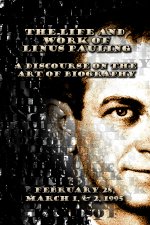Speaker Biographies
Session 1: Linus C. Pauling Day Lecture
February 28, 1995, 7:30p.m. - 8:30p.m.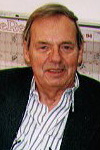
Kensal E. van Holde is a Distinguished Professor Emeritus from Oregon State University's Department of Biochemistry and Biophysics. His primary research interests have included the structure and function of oxygen transport proteins, and the fine structure of chromatin. He is among the world's leading experts in biophysical chemistry and is the author of multiple textbooks.
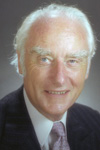
Francis Crick (1916-2004), a molecular biologist, physicist and neuroscientist, was among the most-esteemed scientists of the twentieth century. He shared a Nobel Prize with James Watson and Maurice Wilkins in 1962 for the discovery of the double helix structure of DNA, and went on to make important contributions to the study of RNA as well. In 1977, after a thirty-year association with the Medical Research Council's Laboratory of Molecular Biology (Cambridge, England), Crick accepted the post of J.W. Kieckhefer Distinguished Research Professor at the Salk Institute for Biological Studies (La Jolla, California). He remained at the Salk Institute until his death in July, 2004.
Session 2: The Biographer's Picture of Linus Pauling
March 1, 1995, 9:00a.m. - 11:30a.m.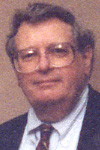
Fred Horne, Oregon State University Professor of Chemistry Emeritus, is the former OSU Dean of Science, a position that he held for thirteen years. While an OSU administrator, Horne was instrumental in the establishment of two programs -- Science and Math Investigative Learning Experience (SMILE) and the American Indian Science and Engineering Society (AISES) -- both of which were designed to encourage students of color and disadvantaged students to pursue and continue their educations in science, math and engineering.

Biographer and science writer Thomas Hager has written or edited five books on medicine and science. For six years he served as Director of Communications and Marketing for the University of Oregon, and spent two years directing the University of Oregon Press. His books include Force of Nature: The Life of Linus Pauling, Linus Pauling: Scientist and Peacemaker (ed. with Clifford Mead) and The Demon Under the Microscope.
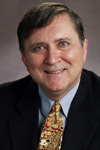
Ted Goertzel is a Professor of Sociology at Rutgers University. He is the co-author of Linus Pauling: A Life in Science and Politics and the author of Turncoats and True Believers and Fernando Henrique Cardoso: Reinventing Democracy in Brazil. His research interests include comparative biography, leadership and social change, Latin American societies and the childhoods of famous people.
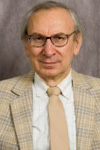
Robert Paradowski is a Professor in the Department of Science, Technology, and Society at the Rochester Institute of Technology. He is the official biographer of Linus Pauling and is currently writing a multi-volume work that will greatly expand upon his doctoral dissertation, The Structural Chemistry of Linus Pauling. More broadly, Paradowski's research interests include the history of chemistry and Roman Catholic studies.
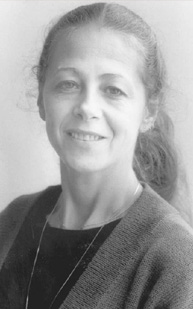
Lily E. Kay (1947-2000) was a historian of science, working first at the University of Chicago and the Massachusetts Institute of Technology, and later as an independent scholar. She authored the acclaimed monographs The Molecular Vision of Life: Caltech, the Rockefeller Foundation, and the Rise of the New Biology and Who Wrote the Book of Life? A History of the Genetic Code.
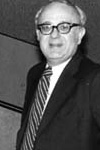
Derek Davenport is an Emeritus Professor of Chemistry at Purdue University. For thirteen years he served on the Editorial Board of the Journal of Chemical Education and has chaired both the Division of Chemical Education and the Division of History of Chemistry for the American Chemical Society. In 1995 he was awarded the Morley Science Medal by the Cleveland Section of the ACS for "outstanding contributions to chemistry."
Session 3: The Personal View of Linus Pauling and His Work
March 1, 1995, 2:00p.m. - 4:30p.m.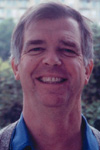
Crellin Pauling (1937-1997) was the youngest of Linus and Ava Helen Pauling's four children. A former Chair of the Department of Biology at San Francisco State University, Pauling was keenly interested in biotechnology education and an enthusiastic supporter of the California State University Program for Education and Research in Biotechnology (CSUPERB). In honor of Pauling's commitment to scientific education, CSUPERB now annually sponsors the Crellin Pauling Student Teaching Award.
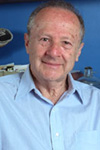
Matthew Meselson is the Thomas Dudley Cabot Professor of the Natural Sciences at Harvard University. He is the recipient of numerous awards, including medals from the National Academy of Sciences and the Genetics Society of America, and honorary degrees from universities including Columbia, Princeton and Yale. Perhaps his most celebrated scientific achievement came in 1957 when he and a colleague, Frank Stahl, formulated an experiment which conclusively proved the method by which DNA replicates itself. The Meselson-Stahl experiment, which has since been dubbed "the most beautiful experiment in biology," was the subject of a best-selling book written by conference participant Frederic Lawrence Holmes.
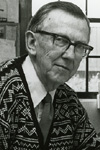
Kenneth Hedberg is an Emeritus Professor of Chemistry at Oregon State University whose research interests include molecular structure and intramolecular dynamics. He is the recipient of numerous honors including Fulbright, Guggenheim and Sloan Fellowships, as well as the F. A. Gilfillan Award and the Sigma Chi Research Award.
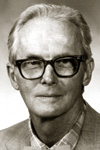
William Lipscomb is the Abbott and James Lawrence Professor of Chemistry, Emeritus, at Harvard University. He is the recipient of numerous awards and honors, including nearly a dozen honorary degrees, and the 1976 Nobel Prize in Chemistry, which he received for his research on the structure and bonding of boron compounds. In recent years, his research has focused upon the structure and function of zinc enzymes and allosteric enzymes.
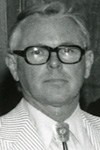
David Shoemaker (1920-1995) was a Professor and former Department Chair of Chemistry at Oregon State University. Primarily a crystallographer, Shoemaker was a past-president of the American Crystallographic Association whose research interests included structure determinations of alloys and zeolite.
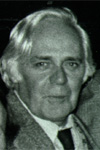
Frank Catchpool (1925-2006) was a family practitioner in Sausalito, California and a Professor Emeritus at the University of California, San Francisco. Prior to entering into private medical practice, Catchpool served on the staff of the Albert Schweitzer Hospital in Lambaréné, Gabon, and at the California Institute of Technology, where he worked with Linus Pauling on the development of a theory of anesthesia, among other topics.
Session 4: Historians and Contemporary Scientific Biography
March 2, 1995, 9:00a.m. - 11:30a.m.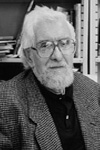
Silvan S. Schweber is a Professor of Physics and the Richard Koret Professor in the History of Ideas at Brandeis University. His research interests include the history of quantum field theory since World War II, the visualization of elementary processes ("Feynman diagrams") and their impact on the conceptualization of physics, post-World War II science and science at the end of the twentieth century. His books include QED and the Men Who Made It and In the Shadow of the Bomb: Bethe, Oppenheimer, and the Moral Responsibility of the Scientist.
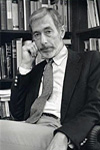
Frederic Lawrence Holmes (1932-2003) spent the bulk of his career in the Department of the History of Science and Medicine at Yale University, for which he served as Department Chair for twenty-three years. He authored numerous books, including Lavoisier and the Chemistry of Life and Meselson, Stahl and the Replication of DNA: A History of "The Most Beautiful Experiment in Biology," as well as a two-volume biography of Hans Krebs. A past-president of the History of Science society, Holmes was the recipient of numerous awards, including the society's George Sarton Medal for 2000.
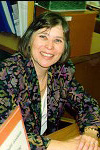
Judith R. Goodstein is the former University Archivist and Faculty Associate in History at the California Institute of Technology. The author of Millikan's School: A History of the California Institute of Technology and The Volterra Chronicles: The Life and Times of an Extraordinary Mathematician, Goodstein's research interests include the history of chemistry, twentieth-century Italian mathematicians and modern American science.
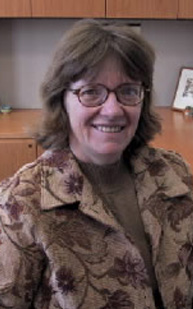
Robin E. Rider is the Curator of Special Collections and Senior Lecturer in the History of Science at the University of Wisconsin-Madison. Her research interests include early modern science, the printing and publishing of science, and the history of mathematics. She is the author of The Show of Science and An Opportune Time: Griffith C. Evans and Mathematics at Berkeley, as well as the co-author of The Quantifying Spirit in the Eighteenth Century.
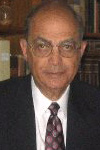
John L. Heilbron is Professor of History and Vice-Chancellor Emeritus at the University of California at Berkeley, as well as past director of the Office for History of Science and Technology. An accomplished historian of physics and astronomy, Heilbron's books include Electricity in the 17th and 18th Centuries: A Study of Early Modern Physics and The Dillemmas of an Upright Man: Max Planck and the Fortunes of German Science. Heilbron's decorations include the History of Science Society's George Sarton Medal (1993) and the Abraham Pais Prize for History of Physics (2000), awarded jointly by the American Physical Society and the American Institute of Physics.


